第74章
The process is: First, the popular tale of the return of the old true love; that tale is found in Greece, Scandinavia, Denmark, Iceland, Faroe, Spain, Germany, and so forth. Next, about 1300 Gilbert Becket is made the hero of the tale. Next, our surviving ballads retain a trace or two of the Becket form, but they are not derived from the Becket form. The fancy of the folk first evolved the situations in the story, then lent them to written literature (Becket's legend, 1300), and thirdly, received the story back from written legend with a slight, comparatively modern colouring.
In the dispute as to the origin of our ballads one school, as Mr. T.
F. Henderson and Professor Courthope, regard them as debris of old literary romances, ill-remembered work of professional minstrels.*
That there are ballads of this kind in England, such as the Arthurian ballads, I do not deny. But in my opinion many ballads and popular tales are in origin older than the mediaeval romances, as a rule. As a rule the romances are based on earlier popular data, just as the 'Odyssey' is an artistic whole made up out of popular tales. The folk may receive back a literary form of its own ballad or story, but more frequently the popular ballad comes down in oral tradition side by side with its educated child, the literary romance on the same theme.
Cf. The Queen's Marie.
Mr. Henderson has answered that the people is unpoetical. The degraded populace of the slums may be unpoetical, like the minstrel named 'Tripe Skewer,' and may deprave the ballads of its undegraded ancestry into such modern English forms as 'Lord Bateman.' But I think of the people which, in Barbour's day, had its choirs of peasant girls chanting rural snatches on Bruce's victories, or, in still earlier France, of Roland's overthrow. If THEIR songs are attributed to professional minstrels, I turn to the Greece of 1830, to the Finland of to-day, to the outermost Hebrides of to-day, to the Arapahoes of Northern America, to the Australian blacks, among all of whom the people are their own poets and make their own dirges, lullabies, chants of victory, and laments for defeat. THESE peoples are not unpoetical. In fact, when I say that the people has been its own poet I do not mean the people which goes to music halls and reads halfpenny newspapers. To the true folk we owe the legend of Lord Bateman in its ancient germs; and to the folk's degraded modern estate, crowded as men are in noisome streets and crushed by labour, we owe the Cockney depravation, the Lord Bateman of Cruikshank and Thackeray. Even that, I presume, being old, is now forgotten, except by the ancient blind woman in the workhouse. To the workhouse has come the native popular culture--the last lingering shadow of old romance. That is the moral of the ballad of Lord Bateman.
In an article by Mr. Kitton, in Literature (June 24, 1899, p. 699), this learned Dickensite says: 'The authorship of this version' (Cruikshank's) 'of an ancient ballad and of the accompanying notes has given rise to much controversy, and whether Dickens or Thackeray was responsible for them is still a matter of conjecture, although what little evidence there is seems to favour Thackeray.'
For the ballad neither Thackeray nor Dickens is responsible. The Old Woman's text settles that question: the ballad is a degraded Volkslied. As to the notes, internal evidence for once is explicit.
The notes are Thackeray's. Any one who doubts has only to compare Thackeray's notes to his prize poem on 'Timbuctoo.'
The banter, in the notes, is academic banter, that of a university man, who is mocking the notes of learned editors. This humour is not the humour of Dickens, who, however, may very well have written the Introduction to Cruikshank's version. That morceau is in quite a different taste and style. I ought, in fairness, to add the following note from Mr. J. B. Keene, which may be thought to overthrow belief in Thackeray's authorship of the notes:--
Dear Sir,--Your paper in the 'Cornhill' for this month on the Mystery of Lord Bateman interested me greatly, but I must beg to differ from you as to the authorship of the Notes, and for this reason.
I have before me a copy of the first edition of the 'Loving Ballad' which was bought by my father soon after it was issued. At that time--somewhere about 1840--there was a frequent visitor at our house, named Burnett, who had married a sister of Charles Dickens, and who gave us the story of its production.
He said, as you state, that Cruikshank had got the words from a pot- house singer, but the locality he named was Whitechapel,* where he was looking out for characters. He added that Cruikshank sung or hummed the tune to him, and he gave it the musical notation which follows the preface. He also said that Charles Dickens wrote the notes. His personal connection with the work and his relation to Dickens are, I think, fair evidence on the question.
I am, dear Sir, Yours truly, J. B. KEENE.
Kingsmead House, 1 Hartham Road, Camden Road, N., Feb. 13,1900.
Mr. Keene's evidence may, perhaps, settle the question. But, if Dickens wrote the Introduction, that might be confused in Mr.
Burnett's memory with the Notes, from internal evidence the work of Thackeray. If not, then in the Notes we find a new aspect of the inexhaustible humour of Dickens. It is certain, at all events, that neither Dickens nor Thackeray was the author of the 'Loving Ballad.'
P.S.--The preface to the ballad says Battle Bridge.